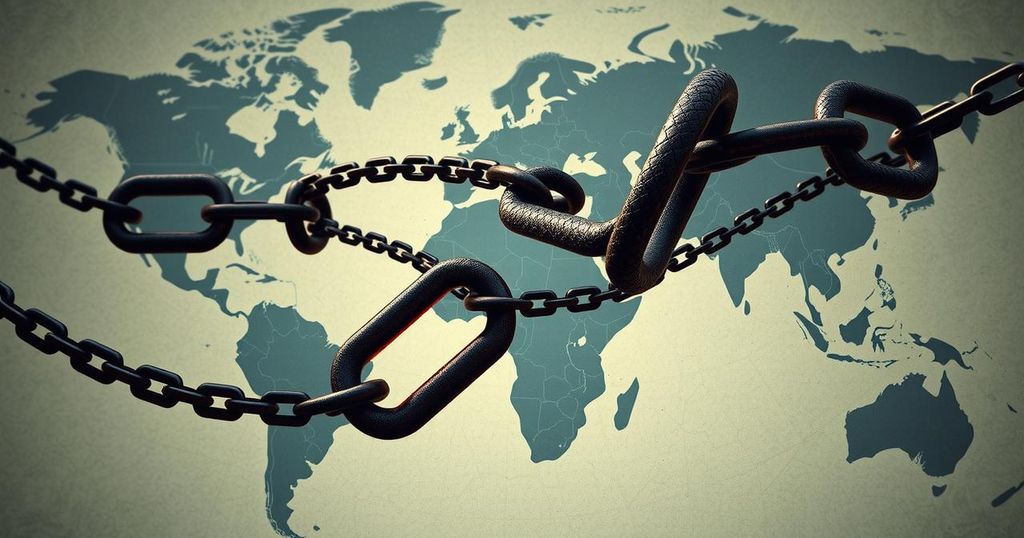Russia and Iran: A Complicated Alliance Rooted in Conflict

Despite their recent alliance, Russia and Iran have a tumultuous history marked by wars and territorial disputes. Contemporary cooperation has flourished in military and nuclear domains, particularly against the backdrop of international sanctions. However, underlying suspicions persist among the Iranian leadership and populace, complicating the potential for a stable relationship moving forward.
Russia and Iran, despite their current alliance, share a complex and conflict-ridden history. Their past includes significant hostilities such as wars in the 18th and 19th centuries, notable territorial losses for Persia, and occupations during World War II. After the Cold War, ties improved as Russia became a critical partner for Iran, particularly in areas of trade and military support. The collaboration gained further depth with agreements involving nuclear technology aimed at countering international sanctions on Iran.
In recent years, Russia and Iran have jointly intervened in the Syrian civil war to support Bashar Assad’s regime against opposition forces. Their military collaboration has been crucial for combating shared adversaries, particularly with the involvement of Iranian proxies. However, ongoing conflicts elsewhere, such as the situation in Ukraine and regional tensions with Israel, demonstrate the complexities of their partnership.
Strategically, the two nations have pursued mutual interests, including military agreements involving advanced weaponry and economic cooperation. The strategic partnership treaty signed recently aims to enhance collaboration across various sectors, yet significant skepticism remains within Iran regarding Russia’s intentions and reliability. Frictions persist beneath the surface, impacting perceptions of this partnership among the Iranian populace and authorities.
Despite formal agreements and recent public affirmations of friendship, Iran’s historical apprehensions about Russia continue to present challenges. Iran’s Revolutionary Guard has expressed discontent and suspicion, particularly concerning Russian actions in Syria. These underlying tensions present potential obstacles that may hinder deeper cooperation between the two nations as they navigate their intricate historical legacies and current geopolitical interests.
The relationship between Russia and Iran has evolved dramatically over the centuries, characterized by periods of rivalry and cooperation. In the 18th and 19th centuries, belligerent encounters led to significant territorial shifts from Persia to Russia. The aftermath of the Bolshevik Revolution and World War II left lasting scars, contributing to a complex legacy. In contemporary times, however, the dissolution of the Soviet Union enabled closer ties, leading to Russia’s pivotal role in Iran’s nuclear advancements and defense strategies, particularly under the pressure of international sanctions.
In conclusion, while Russia and Iran are currently engaged in a partnership aimed at enhancing military and economic ties, their shared history of conflict casts a shadow over this collaboration. The historical grievances and ongoing geopolitical tensions reveal a complex dynamic that may influence their future interactions. The efficacy of their partnership may ultimately depend on their ability to address historical mistrust and regional challenges while fostering a more resilient alliance.
Original Source: apnews.com







